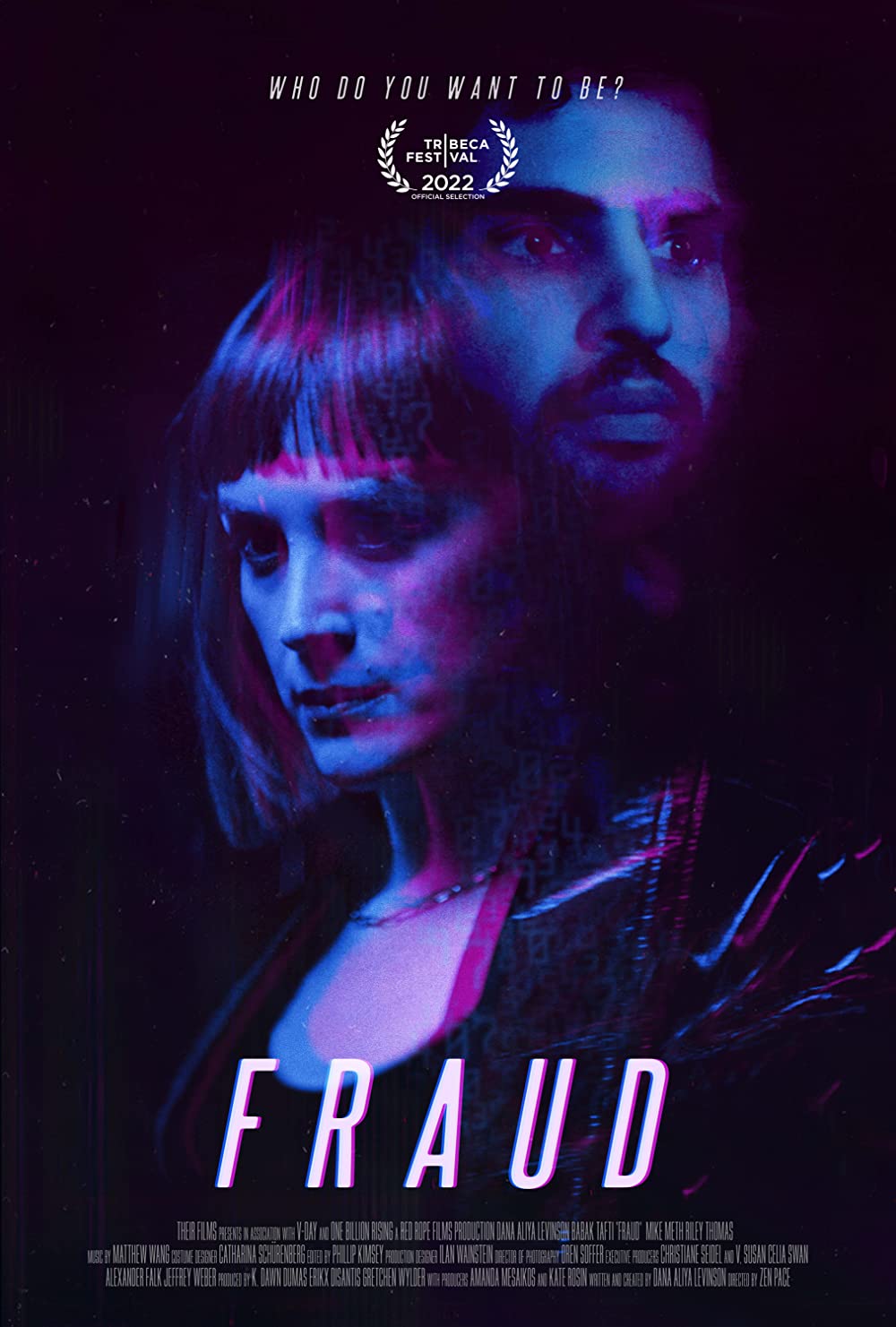By Isha Vibhakar, Film and Television Co-Deputy Editor
Nonbinary director Zen Pace’s debut narrative short FRAUD starring Trans actress Dana Aliya Levinson (STARZ’s American Gods) and Babak Tafti (Showtime’s Super Pumped), subverts the crime thriller genre by centering marginalised characters grappling with identity, love, and immigrant experiences.
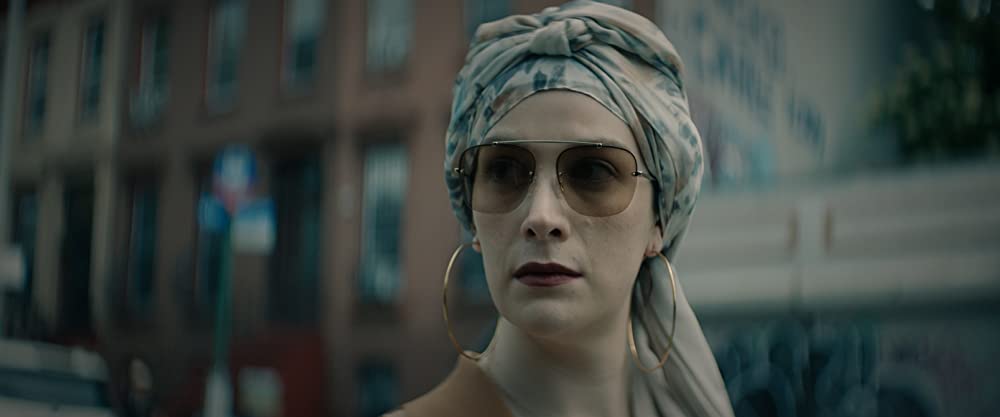
Isha: What inspired you to write this short and how did the writing process feel for you?
Dana: The film is based on a pilot that I’d written which was inspired by a real-life experience. I was living at home as I was still in my transitioning phase and working at a bar to save some money, when my father asked me for financial aid as he couldn’t pay payroll at his dental practice at the time. Then one day, this customer came in and her credit card wouldn’t swipe, and I’ve always had a good memory for numbers. So, I had this fleeting thought of stealing her card and paying myself back which I obviously did not do. However, my following thought was to identity this character, this alternate universe version of me which gave birth to Shira, the main protagonist of FRAUD. The pilot is a 63-page hour long drama and I wanted to shoot a short film version. So, in terms of the process, I was quite adamant that I didn’t want it to be a proof of concept where it felt unsatisfying as if it wasn’t a complete story, but a snippet. That’s where Zen came in to help me find the heart of the pilot and condense a 63-page pilot to a 10-page short.
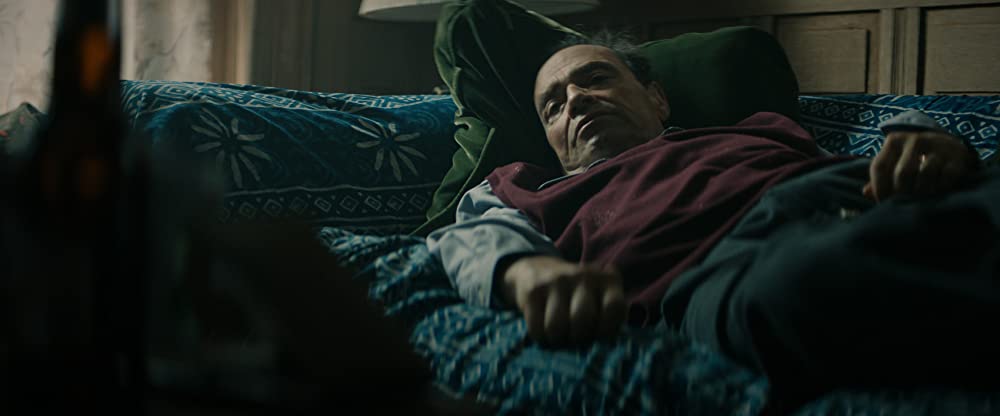
Isha: And Zen, what is it about this script that drew you to direct the film and how was the experience of your process?
Zen: The word chaotic comes to mind as this film took a while to make. I felt like my process kept going back and forth, but when we officially started, it was the most thorough I’ve ever been with a project. I wear my heart on my sleeve, that’s why I love stories that are about characters that may seem like morally questionable or bad people at first glance. I’m not interested in judging people straight off the bat, I’m interested in the nuances of identities because I think our society is often so fractured so to think that it’s as simple as good or bad is so fundamentally flawed. We need characters that go beyond the superhero mythology and acknowledge that we all have our little secrets, our little sins. Shira too, has hers and then she meets someone who actually ‘sees’ her for who she is, and I think we all know how that feels- to be unseen for a while and then have someone look at you and feel something in the pit of your stomach. I think this is at the core of the short and so much more- the fact that we start off with a rock show is wild to me and then we maneuver into this this sexy montage which has elements similar to Gone Girl…
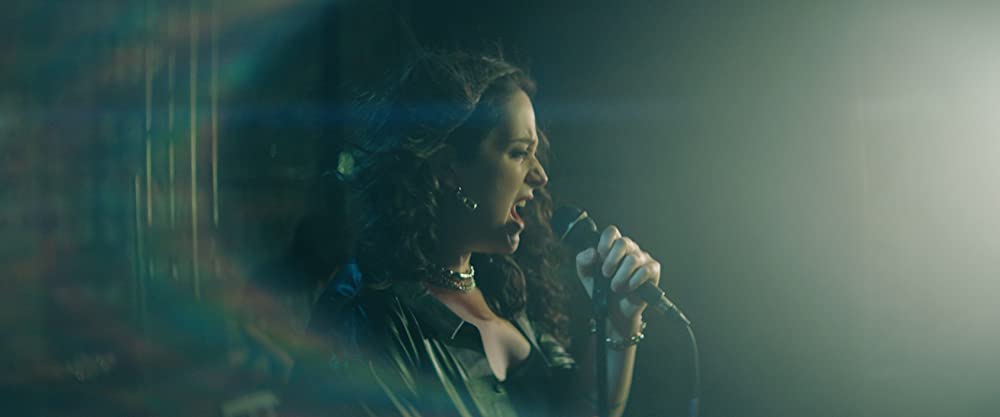
Isha: It’s interesting you bring this up because it leads me to my question about the visual design. Your colour palette is dominated by blues and I wanted to know whether there are any sources which inspired your stylistic choices?
Zen: Dana really loves Euphoria and I love this film Victoria which has probably a lot of deeper blues than Euphoria. The short begins and ends with the similar blues because we felt that living in darker, moodier tones and hues really complemented the story. One of the most important aspects for me was also finding a lot of Steadicam movement. The film industry for a very long time, didn’t give any queer characters anamorphics or the best lenses or Steadicam because they were reserved for higher end budgets of straight white men. And so, it was important for me to make the short feel incredibly elevated and stylized by capitalising on the high production value.
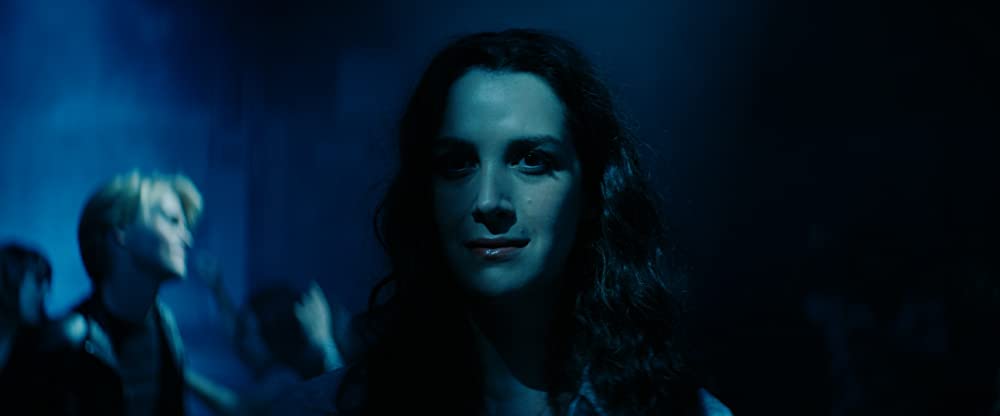
Isha: This is also one of the very few poignant films where all the heads of departments are LGBTQ+. How did you find this process of collaboration?
Dana: Something that we’re often asked is how hard is it to work with queer department heads and the honest answer is, it’s really not that hard; you just have to care and look.
Zen: It felt like we were a tribe- just the chemistry of feeling safe creates a freedom for us queer people. Oren our DP was a real beast- he brought in a lot of the queer crew.
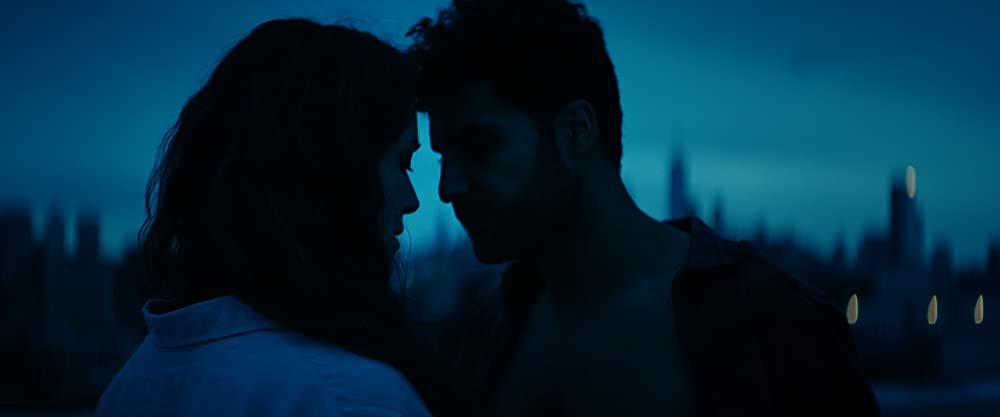
Isha: With the film premiering at the Tribeca Film Festival on the 10th and 15th of June, do you have any plans for the ceremony?
Dana: I’m really excited about it. Since I’m of two marginalised identities, both as a Jewish as well as a trans person, Jews don’t get much representation, especially not out of photos of Bradley Cooper wearing a prosthetic nose to be transformed into a feature film. So, there’s still a long way to go for Jewish representation and I plan to bring a lot of Jewishness to my outfits at the festival.
Zen: I wish I had a badass outfit like Dana, but no, in all seriousness I’m incredibly excited and happy for the little Zen that we’re finally able to make films involving queer characters that don’t fetishise queerness and are accessible to everyone. It’s still a work in progress to imagine us without these qualifying boxes and I look forward to more generations and people making films like this.
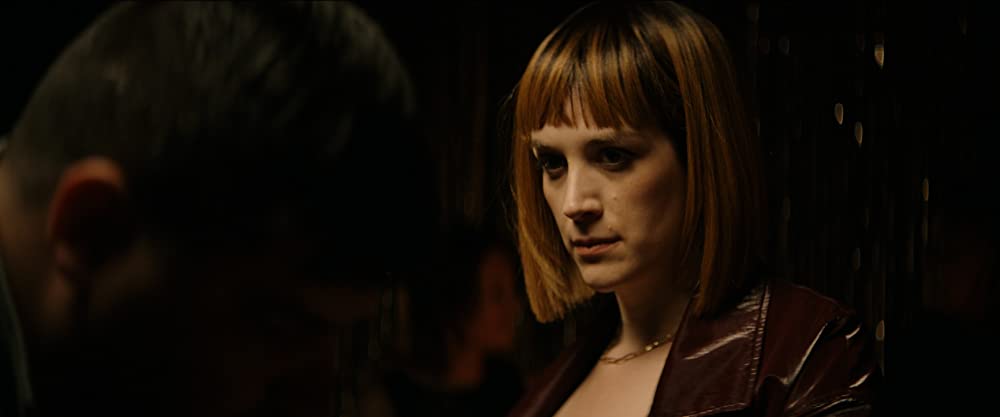
Featured Image: IMDB
FRAUD, presented by Their Films in association with V-Day/One Billion Rising and Red Rope Productions, screened at the Tribeca Film Festival this Pride Month on Friday, June 10th at 9:15 pm and Wednesday, June 15th at 9 pm.

